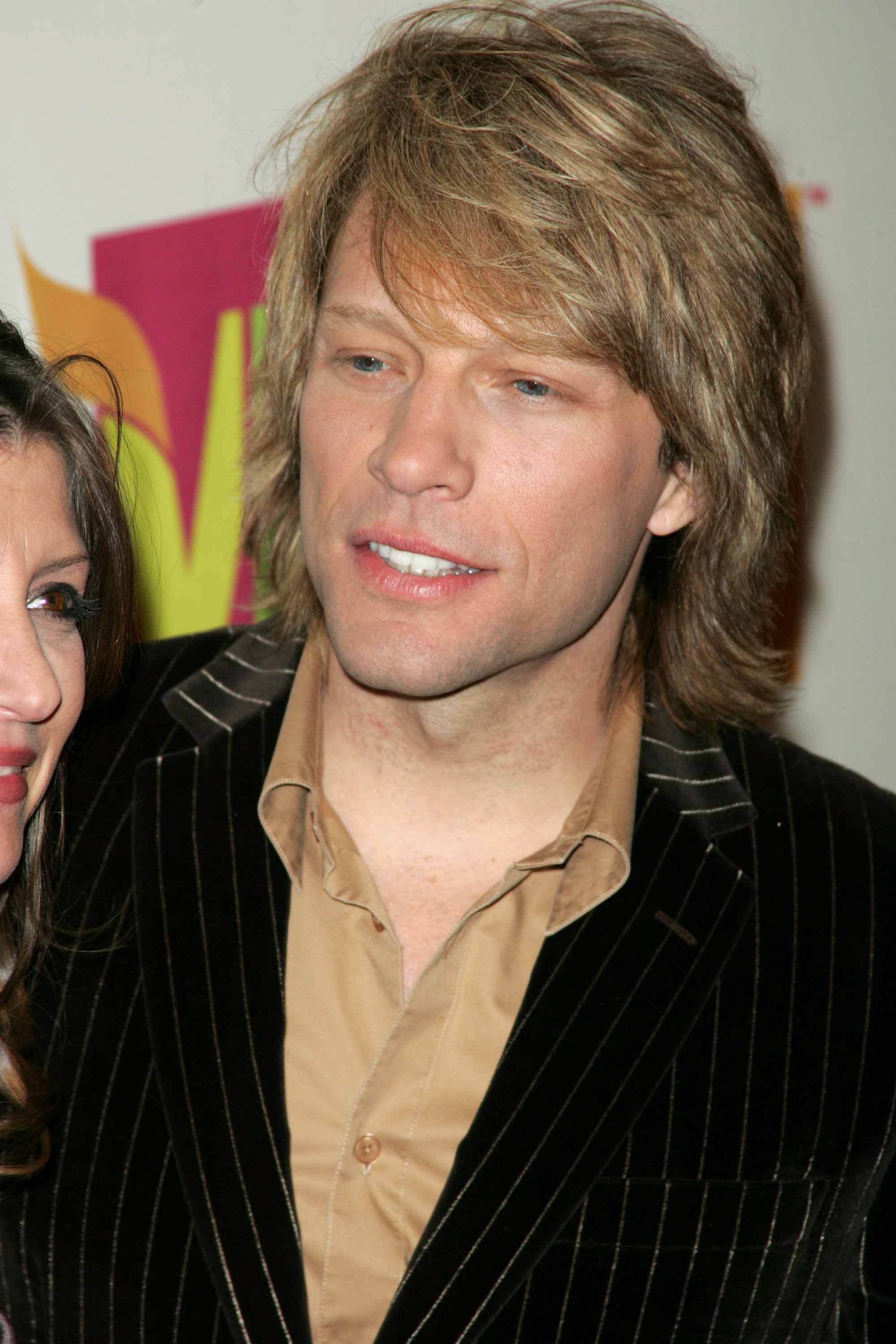There's something truly fascinating about names, how they sound, how they are written, and the subtle ways language shapes our perception of them. When we consider a name like Jon Jennings, it brings up a whole collection of thoughts about how we use words, how we talk to each other, and even how communities of people come together to figure out what's correct. It's almost as if every name carries its own little story, a unique set of linguistic quirks that make it stand out in the everyday chatter we experience.
You see, the way we choose our words, even down to tiny details like a single letter or a small mark, can really change what we mean. This becomes quite clear when we think about how a name like Jon fits into various sentences, prompting us to consider if we should say 'Jon and I' or 'Jon and me.' It's a small thing, perhaps, but it points to a bigger picture of how language works, and how our choices reflect a sense of what feels right in conversation, so.
This exploration of language isn't just for grammar enthusiasts; it's for anyone who uses words, which, you know, is pretty much everyone. It shows us that language is a living thing, always changing, always prompting us to think about its many layers. As we look at the name Jon, we can actually see how these broader ideas about communication play out, giving us a peek into the often-unseen ways words shape our world, basically.
Table of Contents
- The Story of a Name- Jon Jennings and Language's Nuances
- What Does Grammar Say About Jon Jennings's Name?
- How Do Style Guides Shape Our Understanding of Jon Jennings's Name?
- Is Jon Jennings Just Jon- Exploring Naming Conventions?
- What's the Story Behind Names Like Jon Jennings- A Look at Cultural Roots?
- How Does Jon Jennings's Name Connect to Community?
- Can Jon Jennings Be Called Jack- The Fluidity of Nicknames?
- Jon Jennings and the Living Language- A Summary of Insights
The Story of a Name- Jon Jennings and Language's Nuances
When we talk about someone, say, like Jon Jennings, we often come across little puzzles in our everyday speech. Think about the phrase, 'He gave the money to Jon and (i/me).' This common situation makes us pause and consider the correct way to phrase things, doesn't it? It's a point of discussion that many people have, trying to figure out which pronoun fits best in that spot, and it really shows how much thought goes into even simple sentences, you know.
Then there's the idea of adding information in a quiet way, almost like a side note. One example points out that you can use parenthetical remarks, like when someone's manager (copied) needs to give their okay. Or, you might say, 'My manager (copied in) will need to.' These small additions, it seems, can help make a message clearer without breaking up the main flow of thought. It's a neat trick for getting information across without making a big fuss, too it's almost.
Language, in a way, is always moving and changing. We see this when we consider how words and phrases gain new meanings over time. There was, for instance, a discussion about a certain claim, one that apparently came from an online rap dictionary, long after a word like 'jones' had already been used. This just goes to show that what's considered proper or common can shift, sometimes in ways we might not expect, as a matter of fact.
What Does Grammar Say About Jon Jennings's Name?
Sometimes, the smallest marks in writing can cause the biggest questions. Take the comma, for instance. It's perfectly fine to leave out a comma in certain situations, which might surprise some people who feel like every sentence needs one. This flexibility in punctuation suggests that there isn't always one single, hard-and-fast rule for every writing choice, which is kind of interesting.
When we say 'thanks,' how do we usually follow it up? We might say 'thanks John' or 'thanks for the help.' Looking at how people actually use these phrases, it's clear that both ways of saying thanks are very, very common. This tells us that language often has more than one acceptable path, and what feels natural to most speakers often wins out, so.
Consider the simple greeting, 'good morning.' This phrase, while short, is a complete thought all on its own. It's the main idea of a sentence that might not have all the usual parts, like a subject and a verb. This shows us that language can be quite efficient, letting us get our point across with just a few well-chosen words, even if they don't follow every strict rule, you know.
How Do Style Guides Shape Our Understanding of Jon Jennings's Name?
When we want to write well, many of us turn to guides that offer advice on language use. These books or online resources often spend a good amount of time talking about the small differences between words, or even if there is a difference at all. For example, they often look closely at phrases like 'in behalf of' and how they might be used. This attention to detail helps us write more clearly and effectively, giving us a clearer path to follow, naturally.
It's also true that sometimes, even with the best intentions, sentences can be a little unclear. There are times when what we write might mean more than one thing, even if we've tried our best to make it straightforward. This just highlights how tricky language can be, and how important it is to keep refining our words to make sure our message comes across exactly as we mean it, anyway.
Is Jon Jennings Just Jon- Exploring Naming Conventions?
Names are often more fluid than we might think. Someone named John, for example, might just be John, or they might be short for Jonathan. And whether Jonathan turns into John or Jon, or perhaps nothing at all, you just never really know. It's a fascinating thing, how names can take on different forms, and how people choose to use them, or not use them, in their daily lives, is that.
Sometimes, a person might even be called Johnny. This shows us how names can have many variations, some of which are quite common and others less so. It's a reminder that names are not always set in stone; they can have a kind of family tree of their own, with different branches and offshoots, so.
We also see interesting patterns in how we use punctuation with numbers. The 80's, for example, is one way we used to put apostrophes in plurals. While some of these older ways of doing things are now completely gone from modern English, they offer a glimpse into how language changes over time. It's a bit like looking at old photographs of words, seeing how they've changed their clothes, you know.
What's the Story Behind Names Like Jon Jennings- A Look at Cultural Roots?
Every name, every word, seems to have a story behind it, doesn't it? Take the word 'mahjong,' for instance. The question about its origins is quite interesting. The answer often points to a myth, a tale connected to one of the most important figures in Chinese culture, Confucius. This just goes to show how deeply intertwined language and culture are, with stories and legends often shaping how we understand words, in a way.
It's a powerful idea, that the words we use, even the names we carry, might have roots in ancient tales or significant historical figures. It gives them a certain depth, a kind of background hum that we might not always notice but is there all the same. This connection to the past adds a rich layer to our everyday language, making it more than just sounds or symbols, but something with a history, you know.
How Does Jon Jennings's Name Connect to Community?
Our understanding of language, and even names like Jon Jennings, often grows in shared spaces. Think about online communities, like the Stack Exchange network. It's made up of many question-and-answer groups, including places like Stack Overflow, which is a really big and trusted spot for people who work with computers to learn things. These kinds of places are where people come together to share what they know, and to help each other figure things out, which is quite helpful.
These communities are a lot like busy town squares, but for ideas and questions. People can ask something, and others who know a lot about it can offer their thoughts. This way of sharing knowledge helps everyone get a better grip on how language works, or how to solve tricky problems. It's a great example of how collective effort can build a huge pool of information that benefits many, very, very much.
Can Jon Jennings Be Called Jack- The Fluidity of Nicknames?
Nicknames are a curious part of how we use names, aren't they? Someone named John, like John Lennon, probably wouldn't respond if you called him Jack. It's a personal thing, what someone will answer to, and it shows that names, even when they seem similar, can carry very different feelings for people, you know.
Speaking from personal experience, if my name were John, I probably wouldn't answer to Jack either. It's just not what I'm used to, and it doesn't feel like my name. This highlights how personal a name can be, and how much it becomes a part of who we are, honestly.
However, it wouldn't be all that strange for people to start calling a John 'Jack' when they are quite young. Sometimes, these nicknames stick, becoming a part of a person's identity as they grow up. It's a pretty common way for names to change and adapt over time, showing how flexible our language really is, in some respects.
Jon Jennings and the Living Language- A Summary of Insights
So, when we think about a name like Jon Jennings, we're not just thinking about a person, but about all the interesting ways language works around that name. We've seen how small grammar choices, like 'I' or 'me,' can spark discussion, and how even parenthetical notes play a part in clear communication. It's all about the little details that make up our daily speech, you know.
We've also touched on how language keeps changing, with old rules fading and new ways of speaking becoming common. This constant movement means that what feels right today might have been different yesterday, and could change again tomorrow. It's a living, breathing thing, this language of ours, and it's quite fascinating to observe its shifts, really.
And then there's the idea of names themselves, how they can have many forms, like John, Jonathan, or Jon, and how nicknames pop up. It shows us that names are not just labels; they're part of a bigger story, often connected to culture and personal preference. It's a pretty interesting look at how we identify ourselves and others through the words we use, isn't it?
- How To Play Jessie
- Going Our Way One Direction
- New Thriving Near Me
- How To Use Face Slimming Tool
- Offensive Couples Costumes


